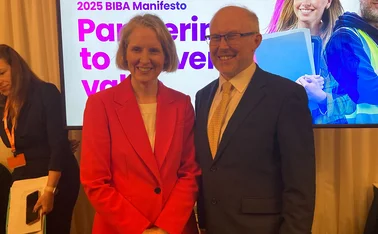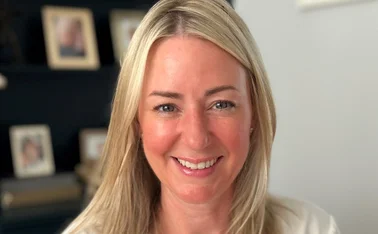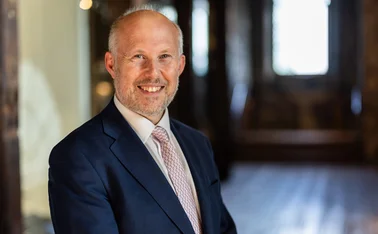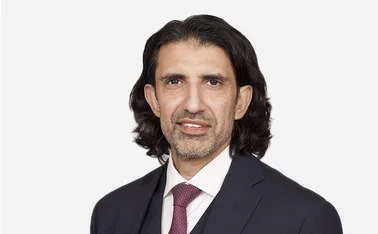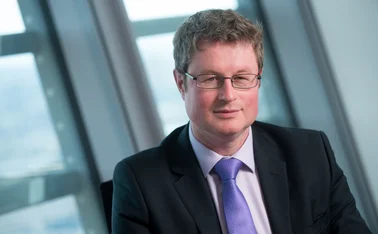
Airmic: Liverpool Lowdown

With Airmic’s 2015 conference taking place in Liverpool. Post asked industry movers and shakers about which city hotspots they’ll be checking out and what they expect from this year’s event.
What do you think will be the big talking points at Airmic this year?
Nigel Wallis, partner, O’Connors: The big talking points at Airmic are likely to be how Airmic members should best: respond to the Insurance Act 2015; manage the financial/reputational risk of malicious or accidental data loss; and keep the changing global risk environment firmly on the board agenda.
Simon Kilgour, insurance and reinsurance partner, CMS: If there was a pie chart of topics on show, I’d wager there to be a large slice of cyber risk, a sizeable portion of advice on supply chain and a big section on the Insurance Act.
Benedict Burke, head of global markets, Crawford & Company: Emerging risks are top of our agenda. We’ve produced a new report which looks at the importance of scenario planning for corporate risk managers, particularly in consideration of risks like environmental damage, cyber liability, terrorism and the one we’re arguably most afraid of but never talk about – pandemic.
Mark Butterworth, managing director, Condie Risk Consultancy: The Insurance Act, cyber risks, Europe in/out, the new Corporate Governance Code; insurance/risk manager education and chartered insurance risk manager status.
Charles Hurst, director, Stackhouse Poland: First, Liverpool will be talked about as being a great choice of venue. The ACC is ideal to host such a gathering, retaining its freshness on a world heritage site waterfront. Second, I anticipate the main talking points will be the settling down of the economy post election and the quiet upturn of the business world, with ongoing intrigue turning to the cost of insurance premiums and how long the ‘soft’ market will be sustainable for.
Troy Johnson, director, Griffiths & Armour: The Insurance Act and emerging risks, especially reputational risks.
Laurence Besemer, CEO, Forum of Insurance Lawyers: The ever increasing scope of vicarious liability and the impact of automated cars.
What do you hope to get out of Airmic?
Wallis: Valuable connections and insights into global insurance trends.
Kilgour: The Insurance Act should be a key concern for buyers and we’re hoping to get a clearer picture of what the true level of awareness is among the corporate community and also among brokers. The new rules place a lot of responsibility on these two parties to get things right and, if they aren’t already, they’ll need to be putting guidelines in place for renewals at 1 January 2016.
Burke: We’ve been given the opportunity to run a workshop explaining our research into scenario planning, so I hope we can help delegates begin formulating new ideas on how to deal with emerging risks.
Butterworth: Discussions with risk managers on: the development of their corporate risk maturity journey; communicating the importance of self-development; and training for risk managers.
Hurst: As I shall be away, I shall be missing the conference.
Johnson: With the ongoing consolidation in the broking sector, reaffirm the stability of Griffiths & Armour and evidence our capabilities alongside our multinational peers.
Will Hope, operations manager, Bibby Ship Management: As a new member of Airmic I hope to meet likeminded professionals, update my professional knowledge within the industry and learn about up and coming issues that may affect the shipping industry.
Besemer: Increased awareness of Foil and of the benefits to lawyers and Airmic members of our work and influence.
Providing cover for emerging risks has been a hot topic recently. How can this issue be tackled?
Wallis: Select the right insurance broker and explore self-insurance options.
Kilgour: For the risk manager, the strategy begins with developing a clear understanding of the risks the organisation faces. There’s no shortage of warnings about new threats, with cyber being the most obvious; but this risk has a very different face if your company runs a factory production line with industrial control systems than if you’re a retailer holding millions of customer account details. If hackers attack the former, you get a massive business interruption loss, if they go for the latter, there’s data breach protocols to fulfil, fines to pay and so on.
Hurst: By ensuring such matters become topical, bringing important matters into focus with an ongoing awareness campaign, headed by those empowered to deliver such news with complementary information.
Johnson: I believe insurers need to engage more with clients and brokers to really understand the implications of these losses.
Besemer: Better use of technology and exchange of underwriting information from around the world.
What do you think of Liverpool as a location for the conference?
Wallis: Perfect – we have our head office here.
Kilgour: It needs a quicker train to get you there, but the crowds seem to like it.
Burke: This is my favourite event of the year as it takes me back home. It’s great to see the city evolving and that it now has world class conference facilities.
Hurst: Entirely appropriate. Geographically convenient for those travelling from all over the UK – and beyond. It also just hosted the incredible visit of Cunard’s Three Queens, celebrating the company’s 175th anniversary here, where Samuel Cunard started the business.
Johnson: It’s an excellent modern venue in a reinvigorated city – plus it’s the home of Griffiths & Armour.
Hope: As I am from the area I have a one-sided view, I believe it’s a fantastic location for the conference especially with all the other world class events going on around the region.
Besemer: 2012 was a really good conference so, hopefully, Liverpool will again prove to be a good venue.
Which speakers/sessions are you most looking forward to and why?
Wallis: Tim Harford – anyone who can explain how to save the world from disaster, match odd socks, lose weight and find happiness must be worth listening to.
Kilgour: Inga Beale is hopefully going to have a lot of interesting things to say in the forum debate. Lloyd’s is at the forefront of creating new solutions for corporates where none would otherwise exist and I hope she’s able to remind delegates of this.
Burke: I’m glad to see that the whole theme of ‘Think the unthinkable’ reflects what we’ve put together in our emerging risks report. If I was pushed to pick a favourite I would probably say Tim Harford’s speech will be one to look out for. His programme More or Less on Radio 4 is excellent and helps cut through some of the less helpful use of statistics we all come across every day.
Hurst: If I was attending, I would welcome the opportunity of listening to both Tim Harford and Karren Brady. From Harford’s perspective, he would be bringing his observations from an academic view. As a ‘world behavioural economist’ I anticipate an insightful commentary of the world of risk and how to recognise it and how to eliminate much by way of good housekeeping and management. Brady, too, would be fascinating, bringing her own experience, relating to risk and how insurance helps deal with some of the exposures. Her involvement with the world of advertising, leading into football, while having interests within Mothercare Foundation, Channel 4 and Sport England ensure a rounded approach to risk/insurance sectors will be appreciated.
Johnson: Those discussing emerging risks. I’m hoping for insight into how these are considered rather than a sales pitch from an insurer.
Hope: Identifying and managing business critical insurances hosted by PWC and Mactavish.
Besemer: Karren Brady – I’m sure she’ll have an honest and refreshing take on risk management – plus we went to the same school.
What Liverpool hotspots will you be checking out?
Wallis: O’Connors’ offices at The Plaza, of course.
Kilgour: Someone told me there’s a restaurant called Death Row Diner in Liverpool that actually specialises in serving the meals that are chosen by condemned men. That sounds nice.
Burke: You can catch me at the Pan Am Bar as Crawford will be hosting an event. Otherwise please tell our football friends that they can see all five of Liverpool Football Club’s European Cups at our Anfield Museum.
Hurst: As I work here, probably all of them at some stage.
Johnson: Aside from the Airmic drinks receptions, you’ll find me at the Cavern Club or Jennys.
Hope: In my youth I have probably been to them all.
Besemer: Is the Cavern Club still there?
What’s the best thing to come out of Liverpool?
Wallis: International trade.
Kilgour: Hopefully Raheem Sterling when he joins a good team like Arsenal.
Burke: Liverpool Football Club and Scouse Stew.
Hurst: The people. A very natural culture, with an appreciation of our heritage.
Johnson: Music, football and science aside, it has to be Griffiths & Armour.
Hope: The Beatles and the Bibby Group, obviously.
Besemer: The Liver Birds (Nerys Hughes and Polly James).
How has the relationship between risk managers and insurers changed over the past 10 years?
Wallis: They’ve realised they’re both on the same side of the fence.
Kilgour: The job of the risk manager is infinitely more complex than it was a decade ago. Many of these guys are as sophisticated in their knowledge of insurance as the people they’re buying it from.
Burke: The risk manager has become a considerably more important part of the corporate structure in recent years and this is reflected in the relationship between our industry and that of the customer. It’s not just insurers whose relationship with corporate risk managers has changed; as claims professionals we frequently help and advise on strategy at this end of the market. There’s so much more collaboration now between professionals; insurers, brokers, lawyers, adjusters. We all play a part.
Hurst: By working more closely together and sharing intelligence and thoughts generally. This has resulted in a greater understanding of exposures on the one hand against the solutions on the other, by way of risk education, leading to either risk reduction or elimination. Insurers are beginning to forge closer ties with risk managers – however it needs to be tri-partite. Brokers need to engage as part of the process too.
Hope: As I have only been in the industry for just over two years I can’t really say, but I can see that building a good relationship with your insurer pays dividends as they are more likely to assist when entering new ventures in emerging markets.
Besemer: As self-insured retention levels have risen the relationship has become more of a partnership, working together to reduce risk and claims costs.
Best bar?
Wallis: Best ask The Bar Standards Board (sorry).
Burke: If it serves a pie and a pint then I’m happy! You don’t get a body like mine without sacrifice.
Hurst: Rigby’s.
Johnson: Jennys.
Hope: Alma de Cuba, but my favourite changes all the time.
Besemer: Anywhere that sells beer.
Best place for shopping?
Wallis: Bold Street and Liverpool One.
Burke: Check out Liverpool One; our world class shopping centre.
Hurst: Liverpool One.
Johnson: Liverpool One.
Hope: Liverpool One.
Besemer: See previous question.
Best restaurant?
Wallis: San Carlo, Castle Street.
Burke: I’ve promised to visit a decent restaurant this year as I’ve treated my colleagues to a tacky Portuguese and a grubby Chinese restaurant on previous visits. Personally I thought they were quite posh restaurants.
Hurst: Ask, an Italian.
Johnson: The Racquets Club (Liverpool’s hidden gem).
Hope: Hanover Street and the Carriage Works.
Besemer: Sapporo Teppanyaki on Duke Street.
Best for live music?
Wallis: My bathroom.
Burke: Other than the Eurovision Song Contest, I never listen to music.
Hurst: The Echo Arena, or – so I am told – The Carling Academy.
Johnson: Cavern or the Echo Arena.
Hope: The Cavern Club.
Besemer: Philharmonic Hall.
The Beatles or Frankie Goes to Hollywood?
Wallis: The Beatles. Any band that writes the line ‘help me get my feet back on the ground’ has got to be an Airmic favourite.
Burke: I mentioned this one last year and it’s getting embarrassing. There’s not a single song on my iPhone. I don’t even have the free U2 album that most people can’t get rid of.
Hurst: The Beatles.
Johnson: Frankie.
Hope: The Beatles.
Besemer: The Beatles.
Everton FC or Liverpool FC?
Wallis: Tranmere Rovers.
Burke: “If Everton were playing at the bottom of the garden, I’d pull the curtains.” Bill Shankley.
Hurst: Everton.
Johnson: Manchester United.
Hope: Definitely Liverpool.
Besemer: Everton, if I have to choose.
What is your favourite Liverpool delicacy?
Wallis: Scouse, out of a pan.
Burke: Scouse stew; hot bread and a pint of mild; fantastic.
Hurst: A Scouse stew (a meaty dish) and from where the term ‘Scouser’ originates.
Johnson: Scouse stew.
Hope: Scouse (it’s a bit like a stew).
Besemer: A Big Mac.
Only users who have a paid subscription or are part of a corporate subscription are able to print or copy content.
To access these options, along with all other subscription benefits, please contact info@postonline.co.uk or view our subscription options here: http://subscriptions.postonline.co.uk/subscribe
You are currently unable to print this content. Please contact info@postonline.co.uk to find out more.
You are currently unable to copy this content. Please contact info@postonline.co.uk to find out more.
Copyright Infopro Digital Limited. All rights reserved.
As outlined in our terms and conditions, https://www.infopro-digital.com/terms-and-conditions/subscriptions/ (point 2.4), printing is limited to a single copy.
If you would like to purchase additional rights please email info@postonline.co.uk
Copyright Infopro Digital Limited. All rights reserved.
You may share this content using our article tools. As outlined in our terms and conditions, https://www.infopro-digital.com/terms-and-conditions/subscriptions/ (clause 2.4), an Authorised User may only make one copy of the materials for their own personal use. You must also comply with the restrictions in clause 2.5.
If you would like to purchase additional rights please email info@postonline.co.uk
